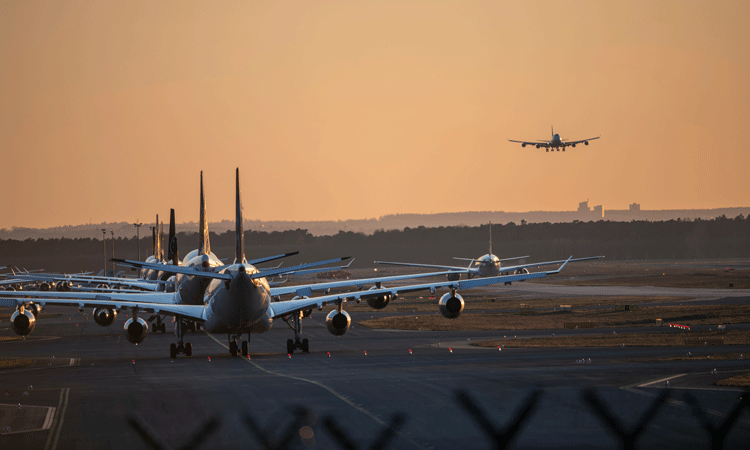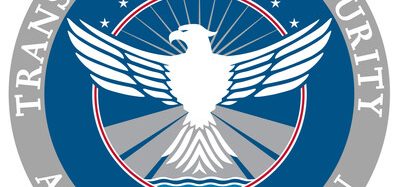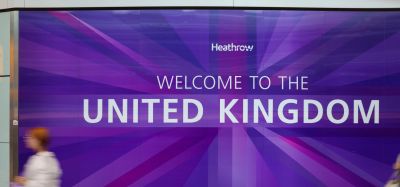Europe’s airports and ground handlers discuss complex challenges
Posted: 9 May 2022 | International Airport Review | No comments yet
In a recent statement, airports and ground handlers across Europe have spoken out about the complex operational and staffing challenges they face as they enter the post-COVID-19 summer travel season.


Airports and ground handlers have spoken out about the complex operational challenges they face as we enter the summer travel season.
In a joint statement, Olivier Jankovec, Director General of Airports Council International Europe (ACI Europe) and Fabio Gamba, Managing Director of Airport Services Association (ASA), began by welcoming the resumption of air travel after the devastating effects of the pandemic on their respective industries – for staff and passengers alike.
Recovery surges forward with higher traffic peaks
The figures speak for themselves in terms of the level of pent-up demand. In the wake of European states easing travel restrictions in March 2022, the recovery of passenger traffic has accelerated sharply and suddenly. While still remaining below pre-pandemic (2019) levels, passenger traffic has also become much more concentrated over peak periods. In fact, at many airports and in particular larger hubs, traffic peaks are at, or higher than, pre-pandemic levels.
Coping with this sudden increase and concentration of air traffic has been challenging for airports and their operational partners – in particular ground handlers. This has resulted in an increase in flight delays and cancellations, and more generally a degraded passenger experience at many airports – as key processes including check-in, security screening and baggage delivery involve longer waiting times.
Depleted resources and struggling to scaled up in a tight labour market
While each airport is unique and the extent of these disruptions varies significantly, the main underlying reason has been the impossibility of scaling up staffing to the levels required in order to accommodate the surge in passenger traffic.
This airport and ground handling staff crunch impacts key airport operational processes. It is caused by:
- Airports and ground handlers coming out of the COVID-19 crisis with depleted resources, as they have been forced to lay off staff in those areas due to the collapse in air traffic in 2020 and 2021. The fact that airports and ground handlers received far less financial aid than airlines and that such aid came rather late was a significant contributing factor to their weakened operational capabilities
- An extremely tight labour market across Europe. The fact that security and ground handling jobs have for many years stood at the lower end of pay scales and also involve working in shifts seven-days a week is a clear handicap in attracting people in the current inflationary environment.
TAKE A READ:
Smart digitalisation of customer service by Maxim Romanenko
New milestone for airport climate action in Europe
Europe’s airports post two year high in recovering passenger traffic
As regards ground handling in particular, years of liberalisation triggered by the EU Ground Handling Directive have resulted in a downward spiral that has now become both socially and operationally unsustainable. If low wages and compromised service quality were already a concern pre-pandemic, they are now coming to the fore – impacting the aviation system.
- Training and security clearance requirements that make it impossible to quickly adapt and deploy additional staff – as they result in lead times of up to 16 weeks between staff recruitment and actual deployment.
Outlook for the summer and beyond
Most airports, and in particular larger ones and hubs where operations are more complex, expect that the quality of the passenger experience will be unavoidably affected by this staffing crunch this summer. A just-completed ACI Europe survey reveals that amongst Europe’s airports:
- 66 per cent expect flight delays to increase
- 16 per cent expect flight cancellations to increase
- 15 per cent expect flight schedules to be adapted
- 35 per cent expect the airport and ground handling staff crunch to affect their operations beyond the summer season.
What will help and what is needed
Airports and ground handlers are leaving no stone unturned as they strive to overcome these challenges. Short-term, there is no quick and easy fix. But disruptions could be reduced by:
- Faster security clearance from competent authorities for airport and ground handling staff
- Airlines adapting their schedules to reduce traffic peaks and returning unused slots as early as possible
- Effective and even closer dialogue and cooperation between all partners involved.
In the medium-term, EU rules on ground handling need to be reconsidered with a renewed focus on resilience. It is crucial that no further liberalisation of ground handling is pursued without a robust legal package aimed at guaranteeing a minimum quality of service and the promotion and recognition of the ground handling workers’ skills through, for instance, the creation of widely recognised training passports. Also, the ability to set an upper limit on the number of ground handling suppliers based on the size of the market (or airport) would go a long way in addressing both social and operational shortcomings.
Join our free webinar: Transforming Airport Security – Innovation, Impact, and the Passenger Experience
The landscape of airport security is undergoing a profound transformation, driven by evolving threats, technology, and passenger expectations. This webinar focuses on how AtkinsRéalis has been transforming security processes at some of the world’s busiest airports with smarter, more adaptive solutions.
Date: 4 Nov | Time: 14:00 GMT
REGISTER NOW TO SECURE YOUR SPOT
Can’t attend live? No worries – register to receive the recording post-event.
Related topics
Airside operations, COVID-19, Ground handling, Passenger experience and seamless travel, Recruitment and training, Security, Social responsibility, Terminal operations, Workforce
Related organisations
Airport Services Association (ASA), Airports Council International Europe (ACI Europe)


















